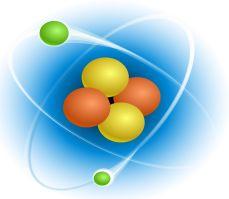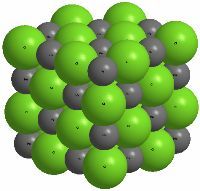Physical chemistry
- Details
- Written by: Germán Fernández
- Category: Start
- Hits: 457
 Chemistry is the science in charge of studying the composition, structure and properties of matter, as well as the changes that occur in it during chemical reactions. His field of study extends from atoms and molecules to complex aggregates of matter such as crystals, colloids …….
Chemistry is the science in charge of studying the composition, structure and properties of matter, as well as the changes that occur in it during chemical reactions. His field of study extends from atoms and molecules to complex aggregates of matter such as crystals, colloids …….
Given the great breadth of this science, it has been divided into disciplines that study different types of matter: Organic Chemistry, Inorganic Chemistry, Physical Chemistry, Analytical Chemistry, Nuclear Chemistry, Chemistry of Materials and Biochemistry. Many other disciplines have emerged over the years to apply chemical knowledge to highly specialized fields, such as: Atmospheric chemistry, Chemical engineering, Electrochemistry, Environmental chemistry, Geochemistry, Materials science, Molecular biology, Nanotechnology, Chemistry Organometallic, Polymer Chemistry, Solid State Chemistry, Supramolecular Chemistry, Solid State Chemistry, Thermochemistry……
To give an idea of the importance that chemistry has today, I will give as data the production of the chemical industry in 2004. The 50 most important chemical companies in the world had a turnover of 587 billion dollars.
- Details
- Written by: Germán Fernández
- Category: Start
- Hits: 829
 “Physical chemistry studies the principles that govern the properties and behavior of chemical systems”
“Physical chemistry studies the principles that govern the properties and behavior of chemical systems”
Physical chemistry can be divided into four main fields: thermodynamics, quantum mechanics, statistical mechanics, and kinetics.
The study of chemical systems can be carried out at two levels: microscopic and macroscopic. At the microscopic level, we work with atoms and molecules, while the macroscopic level involves studying the properties of large amounts of matter.
thermodynamics studies matter from a macroscopic point of view, quantum mechanics from a microscopic point of view, and statistical mechanics has the mission of connecting both worlds.
Thermodynamics studies the equilibrium properties of a system, and the changes produced in these properties during a process.
Quantum mechanics studies atomic structure, bonding in molecules, and spectroscopy.
Statistical thermodynamics allows us to obtain macroscopic properties of a system from atomic or molecular properties.
Finally, kinetics studies the speed of chemical reactions, diffusion processes and the flow of charge in an electrochemical cell.
- Details
- Written by: Germán Fernández
- Category: Start
- Hits: 439
 Inorganic chemistry is the branch of chemistry that studies the properties, structure, and reactivity of inorganic compounds.
Inorganic chemistry is the branch of chemistry that studies the properties, structure, and reactivity of inorganic compounds.
This field of chemistry covers all chemical compounds, excluding those with carbon-hydrogen bonds, which are the object of study by organic chemistry.
Both disciplines share numerous points in common, and interdisciplinary fields of great importance are emerging, among which we can mention organometallic chemistry.
The most important part of inorganic compounds are formed by the combination of cations and anions linked by ionic bonds. Thus, NaCl is formed by the union of sodium cations with chloride anions. The ease with which an ionic compound is formed depends on the ionization potential (for the cation) and the electron affinity (for the anion) of the elements that generate the respective ions.
The most important inorganic compounds are oxides, carbonates, sulfates, ect. Most inorganic compounds are characterized by high melting points, low conductivity in the solid state, and high solubility in aqueous media.
At an industrial level, inorganic chemistry is of great importance. It is customary to measure the development of a nation by its productivity in sulfuric acid. Among the most manufactured chemical products worldwide, it is worth mentioning ammonium sulfate, ammonia, ammonium nitrate, ammonium sulfate, hypochlorous acid, hydrogen peroxide, nitric acid, nitrogen, oxygen, sodium carbonate......
- Details
- Written by: Germán Fernández
- Category: Start
- Hits: 388
 Analytical chemistry takes advantage of science and technology as well as disciplines as diverse as organic chemistry, inorganic chemistry, biochemistry, and nuclear chemistry, to identify and determine the relative amounts of substances in samples of matter.
Analytical chemistry takes advantage of science and technology as well as disciplines as diverse as organic chemistry, inorganic chemistry, biochemistry, and nuclear chemistry, to identify and determine the relative amounts of substances in samples of matter.
The qualitative analysis establishes the type of chemical species present in the sample.
Quantitative analysis determines the amount of each species in the sample.
Analytical chemistry has applications in fields as varied as medicine, industry and, in general, all sciences. Specific examples of its importance can be cited:
- In the production of steel it is essential to control the amounts of carbon, nickel and chromium, to achieve the maximum resistance and hardness of the material.
- Analyzes of these elements during production allow adjustments to their concentrations.
- In medicine, concentrations of oxygen, carbon dioxide, calcium, glucose, cholesterol, present in blood samples are determined for the diagnosis and treatment of diseases.



